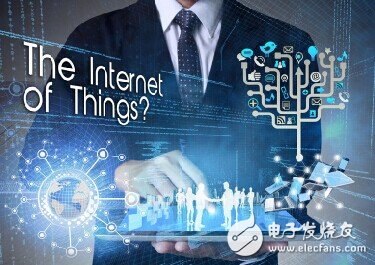Google pushes Physical Web, Web standards for Internet of Everything
Everyone says that the future is the world of the Internet of Things. According to Cisco's forecast, there will be 50 billion IoT devices by 2020, and Intel's forecast is even more positive, with 15 billion next year.
At present, the mode of using these smart devices is probably like this. First, we need to download a mobile app that can interact with these devices, and then use the app to interact with the device, for example, the control of the thermostat Nest, such as those smart bulbs. and many more. In the case of a small variety of smart devices, this is no problem.
But after the explosive growth of the number of smart devices, it is very unrealistic for every new device to have its own app.

Can you make a system that allows anyone to interact with any device at any time? With this in mind, Google launched The PhysicalWeb project. The PhysicalWeb is a virtual world that extends the virtual web to the surrounding world. The goal is to develop a common set of web standards that allow any device (not just Google's devices) to be used to provide interaction and a set of services. With this set of standards, smart devices can broadcast their own URL addresses to the surrounding area, and any devices around them (such as smartphones, tablets) should be able to receive these URLs and present them to users. Users can then interact directly with these devices as needed without having to download the app.
This is reminiscent of the battle between HTML5 and native apps. However, according to them, The PhysicalWeb is not intended to replace the native app, but to provide interaction with the former when the native app is not working well.
According to Google's vision, after each IoT device has a web address, the following conveniences that the app solution can't achieve will become a reality in The PhysicalWeb, when you are close to any smart device:
The bus stop will tell you the arrival time of the next bus.
The same way parking meters and vending machines allow you to pay quickly and easily
As long as you are close to any store, you should be able to provide an online experience regardless of its size.
ZipCar should be able to broadcast a registration page so that you can drive it away right away.
However, Google’s vision of the Internet of Things system Apple has taken a step forward. Its iBeacon technology can also implement O2O closed loop by assigning intelligent resources to clients (smart devices), beacons, and the cloud. But Apple's solution is open in a closed system, and Google wants to create a completely open ecosystem. Creating a set of publicly open standards for the Internet of Things (like HTML), and realizing the interaction of all smart devices without any centralization software, the Google Chrome team's efforts are still very attractive, despite the road ahead. Long.
Outdoor Travelator,Customized Escalator,Electric Home Escalator,Outdoor Escalator Travelator
XI'AN TYPICAL ELEVATOR CO., LTD , https://www.chinaxiantypical.com